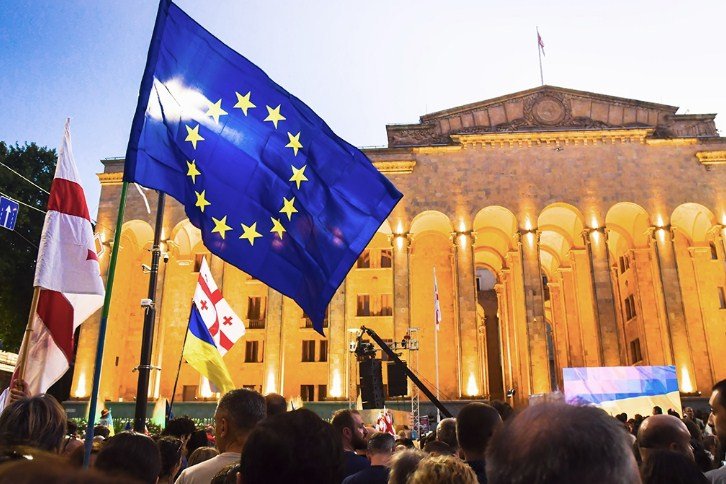An op-ed published by Civil Georgia, a non-governmental organization that provides news and analysis on Georgian politics, society, and culture, has sparked a debate among historians and the public. The op-ed, written by Dr. Beka Kobakhidze, a co-chair of the Master’s Program in Modern History of Georgia and an associate professor at Ilia State University, argues that Georgian historians need to change how they look at and teach history, and stop glorifying the past at the expense of the present and the future.
The Problem of Historical Nostalgia
According to Kobakhidze, Georgian society suffers from a collective madness of historical nostalgia, which affects its political and social choices. He claims that many Georgians are disillusioned with their current situation and seek hope in the past, especially in the medieval era of King David IV or Queen Tamar, who are considered as national heroes and symbols of Georgian glory. He says that this historical fixation promotes ephemeral nationalism, inflates self-esteem beyond reason, and disorients society.
Kobakhidze blames Georgian historians for this problem, saying that they have not changed their approach to history since the Soviet times, when they had to follow the Marxist-Leninist ideology and glorify the Communist party, workers, and peasants. He says that after the collapse of the Soviet Union, Georgian historians replaced socialism with nationalism, and created a new narrative that idealized the feudal lords, capitalists, and the West as villains. He cites examples of doctoral theses and textbooks that are full of historical myths, inaccuracies, and biases.
The Need for Historical Repairs
Kobakhidze argues that Georgian historians need to do historical repairs, which means to critically examine and revise their historical sources, methods, and interpretations. He says that historical repairs are necessary to correct the mistakes and distortions of the past, to provide a more balanced and objective view of history, and to foster a more rational and realistic attitude towards the present and the future.
He also says that historical repairs are essential for developing a democratic culture and a civic identity in Georgia. He says that by doing historical repairs, Georgian historians can help society to overcome its historical trauma, to recognize its diversity and complexity, and to embrace its pluralism and tolerance. He says that historical repairs can also help society to deal with its current challenges, such as poverty, corruption, inequality, conflict, and integration.
The Challenges of Historical Repairs
Kobakhidze acknowledges that doing historical repairs is not easy or popular. He says that Georgian historians face many obstacles and pressures from various sources, such as politicians, media, public opinion, religious institutions, and nationalist groups. He says that these sources often resist or reject any attempt to question or change the established historical narrative, and accuse those who do so of being traitors or enemies of the nation.
He also says that Georgian historians lack the necessary resources and support to do historical repairs. He says that there is a shortage of funding, infrastructure, training, and academic freedom for historians in Georgia. He says that many historians are isolated from their international colleagues and from the latest developments in historical research. He says that there is also a lack of public awareness and interest in history among Georgians.
The Call for Historical Repairs
Kobakhidze concludes his op-ed by calling on Georgian historians to take up the challenge of doing historical repairs. He says that Georgian historians have a responsibility and a duty to change how they look at and teach history. He says that they should not be afraid or ashamed of admitting their errors or revising their views. He says that they should be open-minded and curious about new sources and perspectives. He says that they should be honest and critical about their own biases and assumptions.
He also calls on Georgian historians to communicate their findings and arguments to the wider public. He says that Georgian historians should not only publish their works in academic journals or books but also use other platforms such as newspapers, magazines, blogs, podcasts, documentaries, or social media. He says that Georgian historians should engage with their audiences in a respectful and constructive way. He says that they should explain their methods and evidence clearly and convincingly. He says that they should listen to feedback and criticism patiently and humbly.
He ends his op-ed by saying that doing historical repairs is not only a professional obligation but also a moral imperative for Georgian historians. He says that doing historical repairs is a way of serving their country and their people. He says that doing historical repairs is a way of creating a better future for Georgia.

